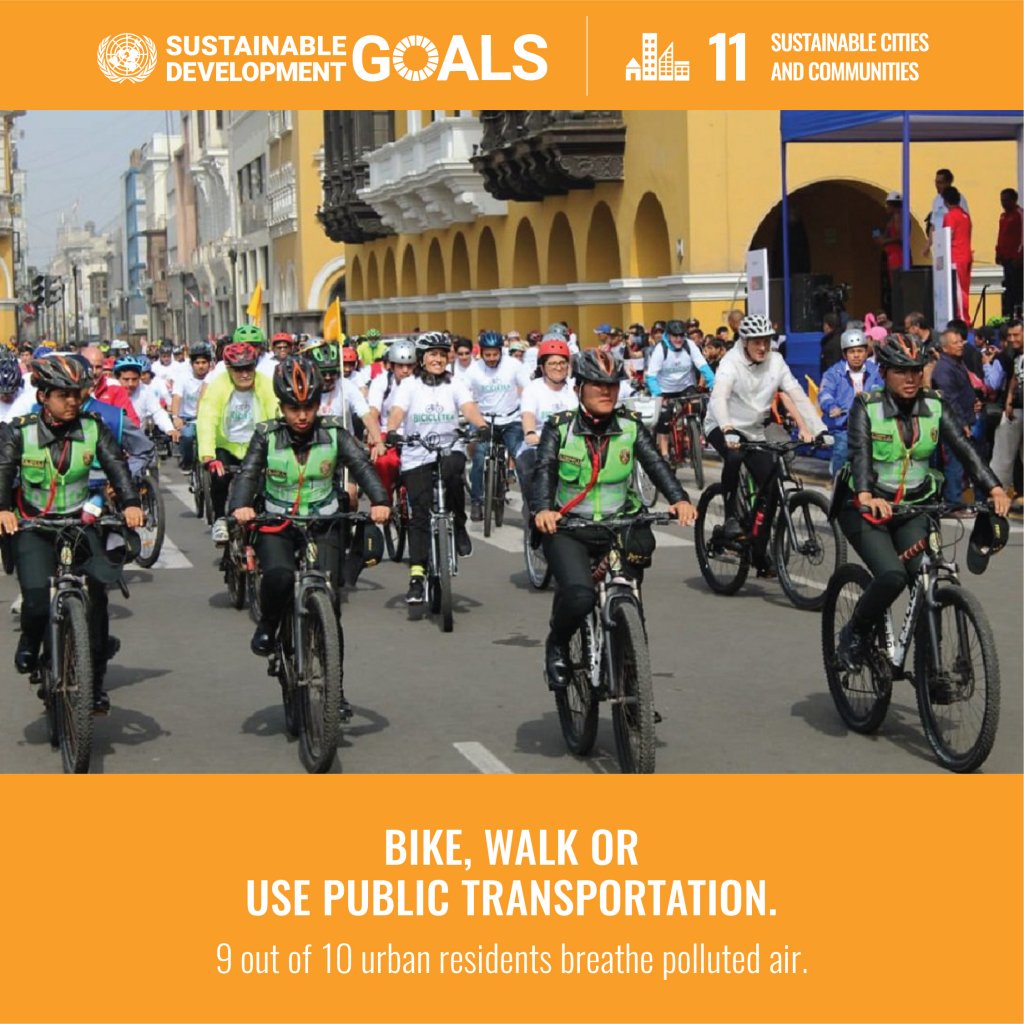
- By 2030, ensure access for all to adequate, safe and affordable housing and basic services and upgrade slums
- By 2030, provide access to safe, affordable, accessible and sustainable transport systems for all, improving road safety, notably by expanding public transport, with special attention to the needs of those in vulnerable situations, women, children, persons with disabilities and older persons
- By 2030, enhance inclusive and sustainable urbanization and capacity for participatory, integrated and sustainable human settlement planning and management in all countries
- Strengthen efforts to protect and safeguard the world’s cultural and natural heritage
- By 2030, significantly reduce the number of deaths and the number of people affected and substantially decrease the direct economic losses relative to global gross domestic product caused by disasters, including water-related disasters, with a focus on protecting the poor and people in vulnerable situations
- By 2030, reduce the adverse per capita environmental impact of cities, including by paying special attention to air quality and municipal and other waste management
- By 2030, provide universal access to safe, inclusive and accessible, green and public spaces, in particular for women and children, older persons and persons with disabilities
- Support positive economic, social and environmental links between urban, peri-urban and rural areas by strengthening national and regional development planning
- By 2020, substantially increase the number of cities and human settlements adopting and implementing integrated policies and plans towards inclusion, resource efficiency, mitigation and adaptation to climate change, resilience to disasters, and develop and implement, in line with the Sendai Framework for Disaster Risk Reduction 2015-2030, holistic disaster risk management at all levels
- Support least developed countries, including through financial and technical assistance, in building sustainable and resilient buildings utilizing local materials
The world is becoming increasingly urbanized. Since 2007, more than half the world’s population has been living in cities, and that share is projected to rise to 60 per cent by 2030.
Cities and metropolitan areas are powerhouses of economic growth—contributing about 60 per cent of global GDP. However, they also account for about 70 per cent of global carbon emissions and over 60 per cent of resource use.
Rapid urbanization is resulting in a growing number of slum dwellers, inadequate and overburdened infrastructure and services (such as waste collection and water and sanitation systems, roads and transport), worsening air pollution and unplanned urban sprawl.
The impact of COVID-19 will be most devastating in poor and densely populated urban areas, especially for the one billion people living in informal settlements and slums worldwide, where overcrowding also makes it difficult to follow recommended measures such as social distancing and self-isolation.
The UN food agency, FAO, warned that hunger and fatalities could rise significantly in urban areas, without measures to ensure that poor and vulnerable residents have access to food.
COVID-19 response
Cities are on the front line of coping with the pandemic and its lasting impacts. Across the globe, COVID-19 is threatening cities and communities, endangering not only public health, but also the economy and the fabric of society.
UN-Habitat, the UN agency for housing and urban development, is working with national and local governments to help them prepare for, prevent, respond to and recover from the COVID-19 pandemic. The UN Habitat COVID-19 Response Plan aims to:
- Support local governments and community-driven solutions in informal settlements
- Provide urban data, evidence-based mapping and knowledge for informed decision
- Mitigate economic impact and initiate recovery
UN-Habitat’s COVID-19 Policy and Programme Framework provides guidance for global, regional and country-level action.
The UN Economic Commission for Africa has proposed specific support to city governments to mitigate and respond to the economic effects of COVID-19. Africa’s cities account for more than 50% of the region’s GDP, and COVID-19 is likely to hit African cities hard, with sharp declines in productivity, jobs and revenues.

